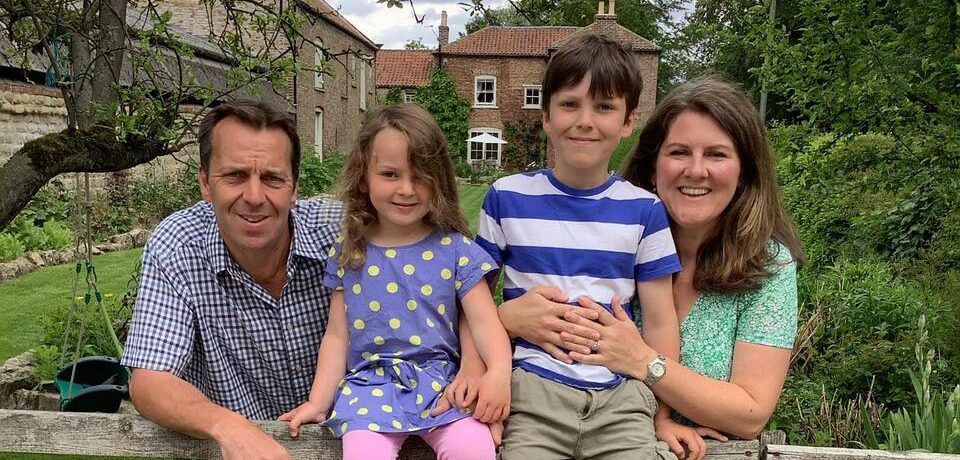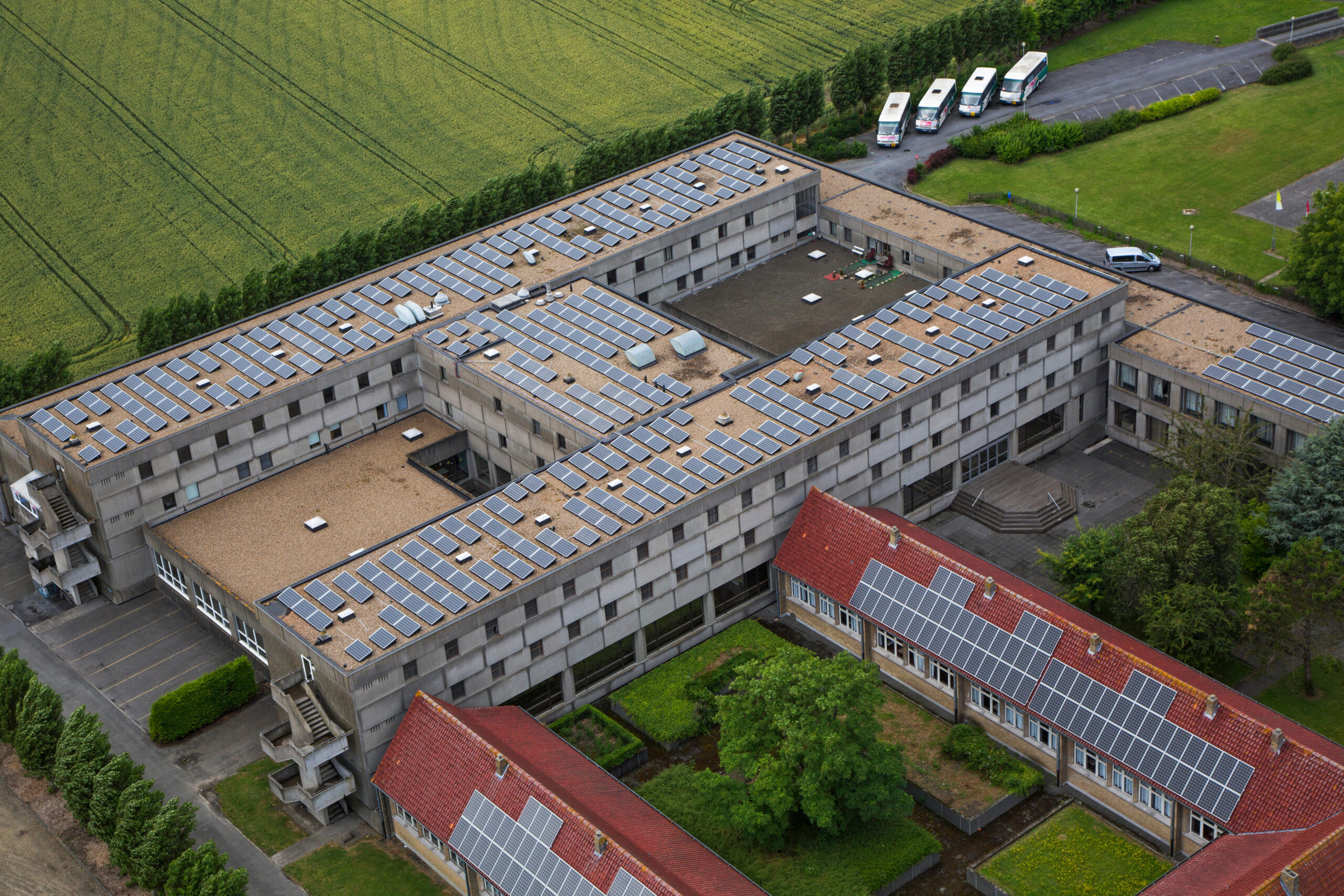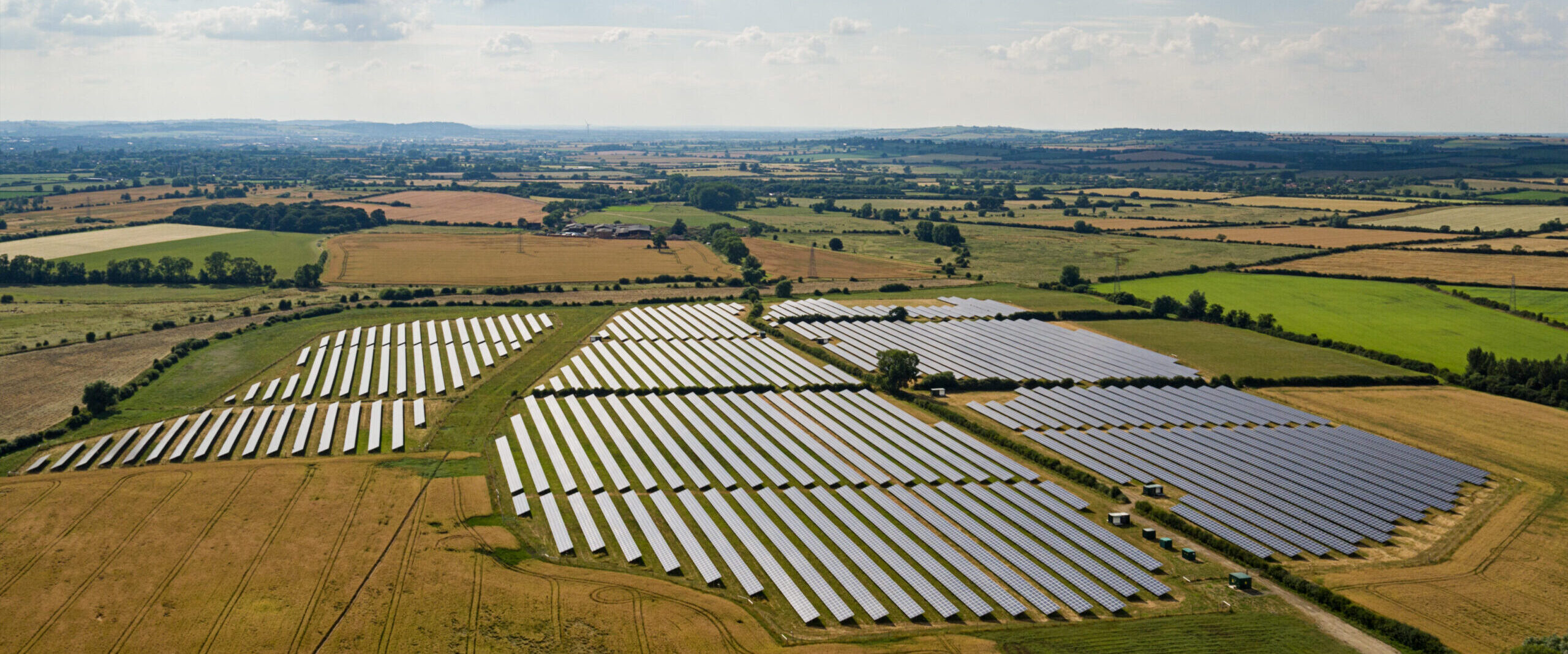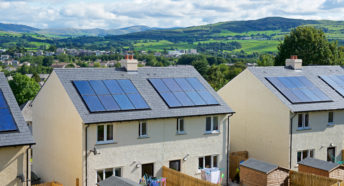Solar farm risks ‘our livelihood and our home’, farmer Emma tells us
Some solar farms may be appropriate in tacking the many crises we face, but too often they are implemented badly. For farmers Robert and Emma, they carry a serious risk to quality farmland and their livelihood. We spoke to Emma who told us more.
Robert Sturdy is a tenant farmer at Eden Farm, Old Malton, North Yorkshire, an area rich in farming heritage. The Sturdy family have farmed at Eden Farm since 1954, and they’ve invested heavily in the land since. ‘It’s not just our business and livelihood, it is our home,’ Emma says. Developer, Harmony Energy has applied for solar and battery storage on 110 acres of their land. ‘The development is on 62.5% Best and Most Versatile farmland, so the loss of good farmland is significant, not to mention the huge impact on the local community and landscape.’
If the application is successful, it would impact local food supply chains too. ‘We grow wheat, barley and oil seed rape as well as fodder beet for our 90 beef cattle. All our grain is sent to local mills which contributes to the local economy,’ Emma says. There’s a risk to the biodiversity of the site too. ‘There is lots of wildlife on the farm, and we do as much as we can to enhance the natural biodiversity through good land management.’
Planning ‘free-for-all’
For Robert, Emma and their two children, the solar application process has been painfully drawn-out. ‘It’s been going on for almost three years, and has had a huge effect on our family,’ she says. It’s also massively lacking in any consultation. ‘We have simply been told what will happen and a planning application has now been submitted. No consideration has been given to our views or wishes.’
In 2014 Robert took over the Agricultural Holdings Act Tenancy from his father; he is the second generation of the three generation tenancy. This tenancy enables farmers to invest in the land, farm sustainably and plan for the future. But, what Emma calls a ‘planning free-for-all’ has led to solar developers rushing to obtain planning permission in an unregulated environment, putting these huge time, money and physical investments at risk.
Tenant farmers at risk
Solar developments are a particularly pronounced problem for tenant farmers, who lack the same freedoms both from a planning perspective and in terms of opportunities to benefit. ‘If a freehold farmer obtains planning permission to erect a solar farm, they can lease it to a solar developer who will pay rent far in excess of the return they can generate from farming,’ Emma says. ‘In contrast, tenant farmers will lose that land from their tenancy forever, putting their livelihoods and even homes at risk.’
Despite the challenges, Robert and Emma have had a lot of support from the local community since they started the ‘Save Old Malton Countryside’ campaign in 2021. ‘Back then, few people had heard about solar on good farmland, but since then the campaign has gone from strength to strength, and we are now grateful for public support,’ Emma says.
‘We are particularly grateful to the Tenant Farmers Association (TFA), the National Farmers Union (NFU), our local MP and Malton Town Council. ‘We’ve also had invaluable support and knowledge from the Solar Campaign Alliance.’
Rooftop solar support
In May 2023, CPRE launched its rooftop solar campaign, which seeks to offer a solution for the rollout of solar without harming the countryside. It’s a campaign which has the couple’s full support. ‘Making provisions for solar energy and agricultural produce is often but incorrectly presented as a binary choice’, she says. ‘We fully support CPRE’s campaign. Applications on inappropriate sites naturally encounter public opposition and ultimately slow down the delivery of clean energy. Rooftops provide a plentiful and convenient location for solar panels with no harmful side effects!’
But tenant farmers will need support if solar is to be viable on a tenant farm, Emma tells us. ‘Tenants need long term security and a way of working together with the landlord to install solar on farmstead roofs,’ she says. ‘At a time where landowners are being encouraged to move away from food production to make the most of their natural capital, tenant farmers find themselves in a fragile position.’
Emma thinks it’s vital that the government ensures long-term security for tenant farmers, otherwise placing solar panels on roofs will never be a priority. She adds, ‘uncertainty for tenants will not lead to investment in renewable energy’.
CPRE’s recent report clearly shows that rooftop solar has massive potential to roll out renewables in a way that conserves landscapes for food and wildlife. Join CPRE’s rooftop solar campaign and call on the government to unleash the potential of rooftop solar. You can find out more over at our rooftop solar page, and you can sign our petition here.





 6 min read
6 min read 

